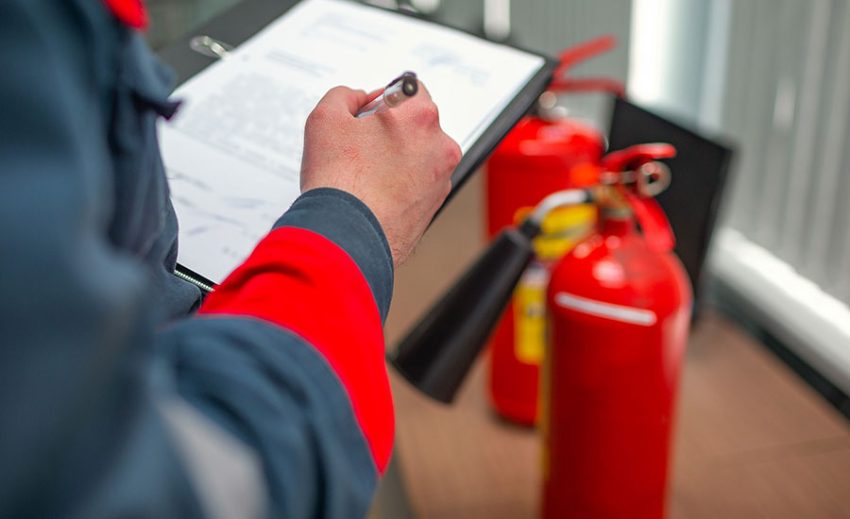How to Prepare for a Fire Inspection in Your Business Premises

No business should endanger its employees or guests. A good approach is to ensure your business premise receives positive results from regular fire inspections. Preparation means you are unlikely to get fines, and your site will be safer.
Why Fire Inspection Matters
Fire inspections are necessary not only because of regulations but also to protect people. These checks identify potential fires and ensure that safety gear is working well. Simple planning can make a big difference when you need to remain compliant.
A wireless fire detection camera is an intelligent addition to your property. It lets us notice heat or smoke early on, before things get more dangerous. This kind of safety system indicates that your company cares about fire safety.
10 Tips to Prepare for a Fire Inspection in Business Premises
Several tips can help you prepare for a fire inspection in a business premise. Some of these tips include the following:
-
Know What the Inspector Looks For
Fire inspectors rely on these regulations as they go through your business. They are particularly concerned with how you use your exits, alarms, fire extinguishers, and where you keep other things. This list helps you be one step ahead.
Examine the reports from the last few inspections or speak with someone at your local fire office for insight. Examine your safety plan to find out what remains dangerous. Dealing with these problems ahead of time will lead to a faster inspection.
-
Check Fire Alarms and Smoke Detectors
Your fire alarm system protects you as soon as there’s a danger. Every part of the building should receive the message with a clear reception. Treat your system to a monthly test and write down the results.
Ensure their batteries are working, as dust or mess should not block them. Exchange your old fireproof materials when they show indications of wear.
-
Inspect Fire Extinguishers
Putting out small fires usually starts with using an extinguisher. Ensure objects are close at hand and that they are always clearly marked. All buildings must be constructed with extinguishers to mitigate fire risk.
Keep an eye on the pressure gauge at least once each month. If the battery is very low, change it without delay. Every item should have a tag showing when the extinguisher was last serviced.
-
Keep Exits Clear All the Time
A red warning during an inspection is when exits are blocked. Exits should never be used for storage, and entrances and exits must be opened easily. All signs showing exit routes must be easily visible and appropriately lit.
Safe exits can save your life. So, don’t rush when you are planning your emergency exits.
-
Store Flammable Materials Safely
Many companies depend on products that can easily catch fire or contain chemicals. They should be kept away from heat or locked in fireproof cabinets. Be sure not to combine various chemicals.
If you have a kitchen, keep your oil pots and pans tidy. Grease buildup can put you in danger of a fire. Items in your warehouse or shop should always be stored high and not too near your light fixtures.
Keeping things in order can minimize accidents. It also helps the inspector realize that your team is aware of its surroundings.
-
Maintain Electrical Systems
A fire may start if your property has old wires or too many items plugged into a socket. Ask an electrician for help whenever you notice sparks, flickering lights, or a burning smell from your system. Do not overlook signals that something is wrong.
Take care of your cords, and do not rely on extension cords for a long time. Surge protectors, when used correctly, will help protect your equipment. Turn off anything you aren’t using after dark or over the weekend.
-
Train Employees on Fire Safety
Fire safety depends heavily on your team. It’s important for employees to understand what is needed, where it should happen, and who needs to be called. To avoid repetition, do some exercises once every few months.
Put fire escape maps where people in the building can easily see them. Indicate where to exit, how to use the fire equipment, and where to meet after an incident. This will ensure that everyone is ready, whether they have worked here for one day or one year.
-
Use a Fire Safety Checklist
It helps to go through a checklist before the day of your inspection. The plan needs to address all the main aspects of your business site. You can add the following items:
- Make sure exits are clear and lit
- Review fire escape routes and maps
- Inspect electrical cords and outlets
- Store flammable items safely
- Train staff and assign fire marshals
- Update fire safety logs and inspection records
-
Organize Fire Safety Records
Inspectors want documentation that you follow test and maintenance procedures for your safety tools. You should keep a record of all fire alarm checks, tests on extinguishers, and drills carried out. It is best to keep your notes in a binder or digital file.
Always add the date, the activity, and the person’s name to each entry. This proves that you place great importance on safety within your business.
-
Make a Plan for Continuous Safety
Fire safety shouldn’t stop after inspection. It’s something you should do regularly. Always review your safety plan and make any needed updates when things in your life change. Changing how a project is organized, getting new people involved, or getting new machinery are also included.
Servicing your safety gear as instructed by its manufacturer prevents it from becoming damaged. You won’t be surprised by sudden failures when you need things to work. Set up a culture where everyone is safe.
Things run better if the workplace is safe, and clients and partners notice and trust it more. It’s a worthwhile process.
In conclusion, getting ready for a fire inspection doesn’t have to be difficult. Good habits and useful tools will help you pass the test confidently. Your business must be secure, and your staff should stay safe.
First, conduct frequent checks, gather the team, and upgrade to wireless fire detection cameras. By taking these precautions, your business will focus on valuing safety. You’ll also rest easy and go through inspections with fewer problems.



